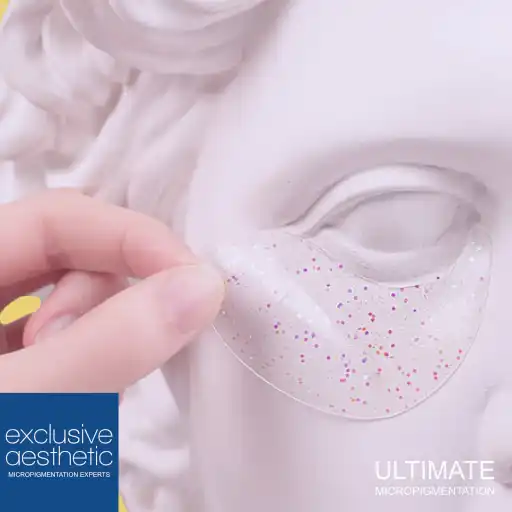How AI is Revolutionising Skincare Routines
How AI is Revolutionising Skincare Routines
Outline
Introduction to AI in Skincare
Understanding Skincare Routines
- Defining skincare routines
- Importance of skincare routines
Challenges in Traditional Skincare
- One-size-fits-all approach
- Lack of personalisation
Role of AI in Skincare Revolution
- Personalised recommendations
- Analysis of skin conditions
AI-Powered Skincare Devices
- Smart mirrors
- Skin analysis apps
Innovation in Product Development
- Formulation of custom skincare products
- Ingredient analysis and recommendations
Enhanced Customer Experience
- Virtual try-on features
- Real-time feedback and adjustments
AI’s Impact on Dermatology
- Early detection of skin issues
- Telemedicine advancements
Future Trends and Possibilities
- AI-driven predictive skincare
- Integration with wearable devices
Ethical Considerations
- Data privacy concerns
- Ensuring inclusivity and accessibility
Case Studies of AI in Skincare
Consumer Adoption and Acceptance
Expert Opinions on AI in Skincare
The Intersection of AI and Sustainability
Conclusion

Q1 How AI is Revolutionising Skincare Routines
The beauty industry has recently witnessed a remarkable transformation by integrating artificial intelligence (AI) into skincare routines. From personalised recommendations to innovative product development, AI is revolutionising how we care for our skin. This article explores how AI is reshaping skin care practices and the implications of this technological advancement.
Introduction to AI in Skincare
Artificial intelligence, a branch of computer science that aims to create machines capable of intelligent behaviour, has found its way into numerous sectors, including healthcare and beauty. In skin care, AI algorithms analyse vast data to offer personalised solutions tailored to individual needs.
Understanding Skincare Routines
Defining Skincare Routines
Skincare routines refer to the customary practices individuals undertake to maintain the health and appearance of their skin. These routines typically involve cleansing, moisturising, and protecting the skin from environmental damage.
Importance of Skincare Routines
A consistent skincare routine is essential for promoting healthy skin and preventing common issues such as acne, dryness, and premature ageing. However, traditional skincare approaches often lack personalisation, leading to suboptimal results for many individuals.
Challenges in Traditional Skincare
One-size-fits-all Approach
Historically, skincare products and routines have been designed with a one-size-fits-all mentality, failing to account for consumers’ diverse needs and preferences. This approach overlooks the unique characteristics of each person’s skin, resulting in ineffective solutions for many individuals.
Lack of Personalisation
Traditional skincare methods rely heavily on generic recommendations and marketing strategies rather than personalised assessments of skin type, concerns, and goals. As a result, consumers may struggle to find products that address their specific needs, leading to frustration and dissatisfaction.
Role of AI in Skincare Revolution
Personalised Recommendations
One of the most significant contributions of AI to skincare is its ability to provide personalised recommendations based on individual skin profiles. By analysing factors such as skin type, concerns, climate, and lifestyle, AI algorithms can suggest tailored products and routines that optimise results for each user.
Analysis of Skin Conditions
AI-powered skincare platforms utilise advanced imaging technology to assess skin conditions and track changes over time. By analysing skin surface images, AI algorithms can identify issues such as wrinkles, dark spots, and inflammation, enabling users to monitor their skin health more effectively.
AI-Powered Skincare Devices
Smart Mirrors
Smart mirrors equipped with AI technology offer virtual skincare consultations and product recommendations based on real-time skin analysis. These interactive devices provide users with personalised skincare routines and track the effectiveness of their chosen products over time.
Skin Analysis Apps
Mobile apps powered by AI algorithms allow users to upload photos of their skin for instant analysis and recommendations. These apps can identify skin concerns, suggest suitable products, and track progress over time, empowering users to take control of their skincare journey from the palm of their hand.
Innovation in Product Development
Formulation of Custom Skincare Products
AI-driven algorithms enable the formulation of custom skincare products tailored to individual needs and preferences. By analysing ingredient databases and user feedback, brands can create personalised formulas that address specific concerns and deliver optimal results.
Ingredient Analysis and Recommendations
AI algorithms can analyse skincare ingredients’ efficacy and compatibility with different skin types. This data-driven approach helps consumers make informed decisions about product selection and empowers them to choose formulations that align with their skincare goals.
Enhanced Customer Experience
Virtual Try-On Features
AI-powered virtual try-on features allow users to preview how skincare products look and feel on their skin before purchasing. By simulating product applications and effects, these virtual experiences enhance the shopping experience and increase confidence in product selection.
Real-Time Feedback and Adjustments
How AI is Revolutionising Skincare Routines – Some AI-driven skincare devices offer real-time feedback on product usage and skin health, guiding users towards optimal skincare practices. By monitoring factors such as hydration levels, sun exposure, and product effectiveness, these devices help users make informed decisions about their skincare routines.
AI’s Impact on Dermatology
Early Detection of Skin Issues
AI algorithms are used increasingly to detect early signs of skin cancer and other dermatological conditions. By analysing images of moles, lesions, and other skin abnormalities, AI systems can assist dermatologists in diagnosing and treating diseases more accurately and efficiently.
Telemedicine Advancements
AI integration into telemedicine platforms enables remote consultations and diagnosis of skin conditions, improving access to dermatological care for underserved populations. Patients can receive expert advice and treatment recommendations from the comfort of their own homes, reducing barriers to care.
Future Trends and Possibilities
AI-Driven Predictive Skincare
As AI technology continues to evolve, we can expect to see the emergence of predictive skincare solutions that anticipate users’ needs and preferences. By analysing data from wearable devices, environmental sensors, and genetic profiles, AI algorithms can forecast changes in skin health and recommend preventive measures accordingly.
Integration with Wearable Devices
Integrating AI into wearable devices such as smartwatches and fitness trackers opens new possibilities for personalised skincare. These devices can monitor sun exposure, sweat levels, and hydration status, providing valuable insights into skin health and guiding users towards optimal skincare practices.
Ethical Considerations – How AI is Revolutionising Skincare Routines
Data Privacy Concerns
The collection and analysis of personal data in AI-powered skincare raises concerns about data privacy and security. Companies must prioritise user consent, transparency, and data protection to ensure that sensitive information remains secure and confidential.
Ensuring Inclusivity and Accessibility
AI-driven skincare solutions must be designed with inclusivity and accessibility in mind, taking into account diverse skin types, ethnicities, and cultural backgrounds. By considering the needs of all users, companies can develop effective, inclusive, and culturally sensitive solutions.
Case Studies of AI in Skincare
Several companies have successfully integrated AI into their skincare offerings, revolutionising how consumers approach skincare. For example, Neutrogena’s Skin360™ app uses AI-powered technology to analyse users’ skin and provide personalised product recommendations, while L’Oréal’s Perso device creates custom skincare formulas tailored to individual needs.
Consumer Adoption and Acceptance
Despite initial scepticism, consumers increasingly embrace AI-driven skincare solutions for their convenience, effectiveness, and personalised approach. As awareness grows and technology improves, we expect widespread AI adoption in skincare routines worldwide. How AI is Revolutionising Skincare Routines.
Expert Opinions on AI in Skincare
Leading dermatologists and skincare experts recognise the potential of AI to revolutionise skincare practices and improve patient outcomes. Many believe that AI-driven solutions will become integral to dermatological care, offering personalised recommendations and predictive insights that enhance patient satisfaction and treatment outcomes.
The Intersection of AI and Sustainability
AI-powered skincare has the potential to promote sustainability by reducing waste and environmental impact. By creating custom formulations and optimising product usage, AI algorithms minimise the need for excess packaging and unnecessary ingredients, contributing to a more eco-friendly approach to skincare.
Conclusion – How AI is Revolutionising Skincare Routines
In conclusion, artificial intelligence is revolutionising skincare routines by offering personalised recommendations, analysing skin conditions, and driving innovation in product development. From smart mirrors to predictive skincare solutions, AI-powered technologies are transforming how we care for our skin, enhancing the customer experience, and advancing dermatological care. As AI continues to evolve, the future of skincare looks brighter than ever, with endless possibilities for personalised, effective, and sustainable solutions.
FAQs
How does AI analyse skin conditions?
AI algorithms use advanced imaging technology to assess skin conditions by analysing skin surface images for signs of wrinkles, dark spots, and inflammation.
Are AI-driven skincare solutions safe to use?
Yes, AI-driven skincare solutions are generally secure to use, but it’s essential to follow manufacturer instructions and consult a dermatologist if you have any concerns or adverse reactions.
What data is collected by AI-powered skincare devices?
AI-powered skincare devices may collect data such as skin type, concerns, product usage, and environmental factors to provide personalised recommendations and insights.
How can AI improve access to dermatological care?
Integrating AI into telemedicine platforms allows patients to receive remote consultations and diagnose skin conditions, improving access to dermatological care for underserved populations.
What are some ethical considerations related to AI in skincare?
Ethical considerations related to AI in skincare include data privacy concerns, ensuring inclusivity and accessibility, and addressing biases in algorithms and recommendations.
Micropigmentation training by the industry expert with 35+ years’ experience.
How AI is Revolutionising Skincare Routines
Links To Our UK Services
- Homepage
- SPMU Training
- Foundation SPMU Training
- Tattoo Removals Training
- Eyebrow Tattoo Training
- Lip Blush Training
- Medical Micropigmentation Training
- Scalp Micropigmentation Training
- Areola Tattoo Training
- Scar Removal Training
- Skin Rejuvenation Training
- All Training Courses
How AI is Revolutionising Skincare Routines
GET IN TOUCH
Enquire about one of our training courses or treatments by sending us a message using the floating widget (bottom right of the page), and we will contact you to discuss the next step.
Prefer to discuss using WhatsApp? Please get in touch with Candice using the number below.
How AI is Revolutionising Skincare Routines

